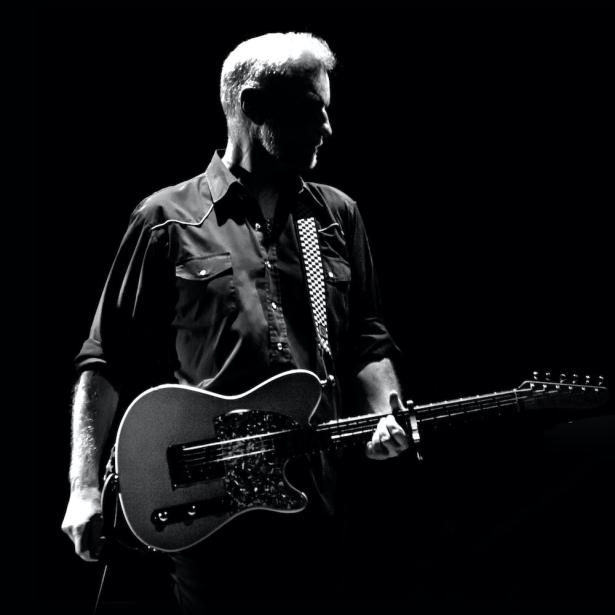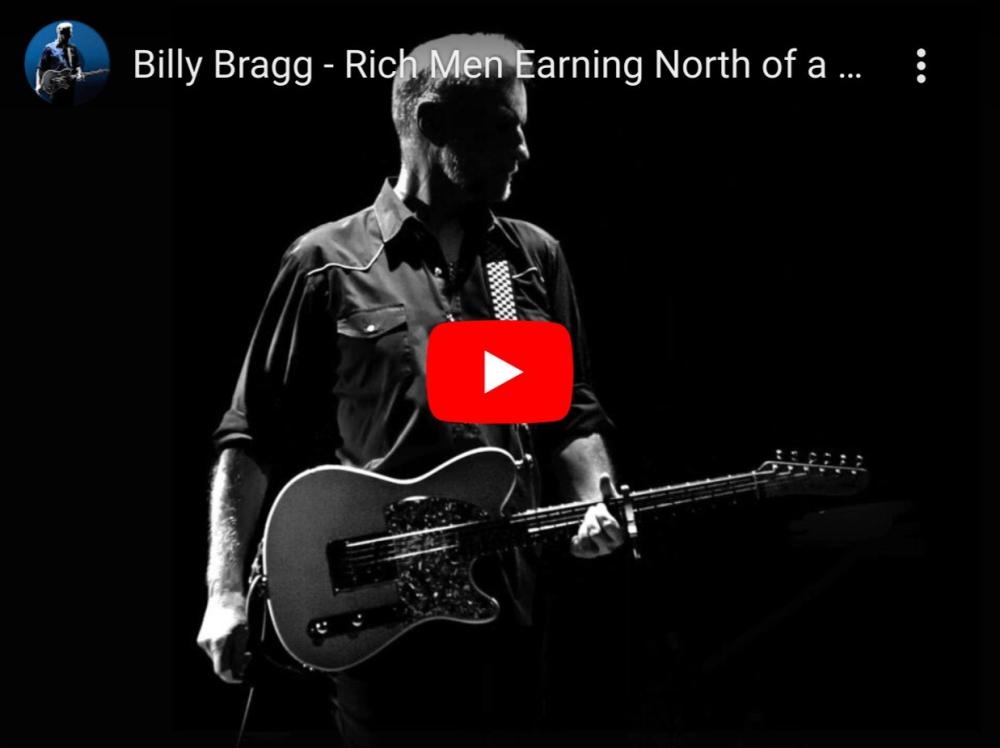‘Don’t mourn: organise” were the last words of the great union songwriter Joe Hill, framed on a murder charge and executed in Salt Lake City, Utah, in November 1915. A reminder to activists that the struggle carries on even though a strike may end in defeat, they’re also a handy maxim for anyone writing songs about the pressures that working people face. If you hope to inspire, rather than just providing a litany of problems, then it’s necessary for your song to offer some vision of redemption. While it is clearly beyond the scope of the songwriter to provide a cure for society’s ills, there is a role to play in calling out where you perceive the problem to lie and suggesting a possible way forward.
Joe Hill’s words came to mind when I heard Rich Men North of Richmond, a song posted on YouTube two weeks ago by Oliver Anthony, a young singer from Farmville, Virginia. The clip has since had 31m views. Yesterday it entered the Billboard charts at No 1, an unprecedented feat for an artist with no prior recording history.
At first glimpse, the video clip looked like my kind of music: a young bearded guy up in the woods of Appalachia, playing a resonator guitar. As soon as he started singing, I was on board. “I’ve been sellin’ my soul, workin’ all day, overtime hours for bullshit pay.” Preach, brother! When Anthony sang of “rich men north of Richmond, they want to have total control” I had in my mind corporate America, the tech bro billionaires whose companies monitor their workers all the way to the bathroom and back.
I was still with him when he highlighted “folks on the street with nothing to eat” but was brought up sharp when he followed it with “and the obese milkin’ welfare”. Whoa! What is he saying here? Homeless hungry people need help, but not if they’re overweight? When the next line attacked short, fat people who receive welfare only to spend it on chocolate biscuits, I figured the song was a parody. Why didn’t he rhyme “tax” with “snacks”, the songwriter in me thought. But it isn’t a parody.
Anthony really does punch down on the poor. The lives of ordinary working people are being torn apart by the rich, he laments, but we can fix it if we cut welfare – and taxes too. Listening to the lyrics in that context, I came to understand why the song had gone viral among rightwing figures in the US. It’s a classic example of the divisive narrative that bosses have used to pit worker against worker since the days of Joe Hill. If the poor are fighting one another over racial hierarchy or cultural grievance, their anger will be directed away from the people responsible for their plight – the rich who exploit those in work and abandon those in need.
Anthony has said that he hoped the song would capture the voice of blue-collar workers who feel like they can’t get ahead, which is a laudable aim, but he doesn’t seem aware that there is a remedy for that problem, one which empowers working people. His home state Virginia is currently undergoing a resurgence in union activism. Local radio station WVTF reported last year that the push to organise is being led by young people around Anthony’s age. Joining a union won’t solve all of the problems he sings about, but if he really wants to stop rich men having total control, then organising in the workplace is surely the first step to gaining some sense of agency?
There’s a tradition in popular music of artists writing “answer songs” that reply to issues raised by the hits of the day, so this weekend I sat down to compose a response to Rich Men North of Richmond that offered some fraternal advice to the beleaguered characters Anthony represents. Given I was writing in a country style, I thought of how Johnny Paycheck was able to express the anger of the working man without blaming those worse off than him in Take This Job and Shove It. I recalled how Johnny Cash believed in flag, faith and family, yet wore black in solidarity with the poor. But most of all, I thought of Woody Guthrie who wrote: “I hate a song that makes you think you are not any good. I hate a song that makes you think that you are just born to lose. I’m out to fight those songs to my very last breath.”
Woody knew that cynicism was the enemy of all of us who want to make a better world, so I’m ignoring those who accuse Anthony of deliberately stoking the culture wars that have divided America. I hear someone struggling to make sense of a world in which help is hard to come by. I wish Oliver Anthony all the best with his newfound fame. I hope it allows him to make a living playing music. But I know from experience that he’s going to face a lot of scrutiny from partisan players demanding he clarify his politics.
I wrote to offer him the perspective of someone whose understanding of solidarity and songwriting was shaped 40 years ago by the miner’s strike. The lesson I learned is as relevant today as it was back then: There is power in a union.
Stephen William Bragg (born 20 December 1957) is an English singer-songwriter and activist. His music blends elements of folk music, punk rock and protest songs, with lyrics that mostly span political or romantic themes. His music is centred on change and activist causes. More by Billy Bragg.
Guardian Media Group is a global news organisation that delivers fearless, investigative journalism - giving a voice to the powerless and holding power to account. Our independent ownership structure means we are entirely free from political and commercial influence. Only our values determine the stories we choose to cover – relentlessly and courageously.



Spread the word